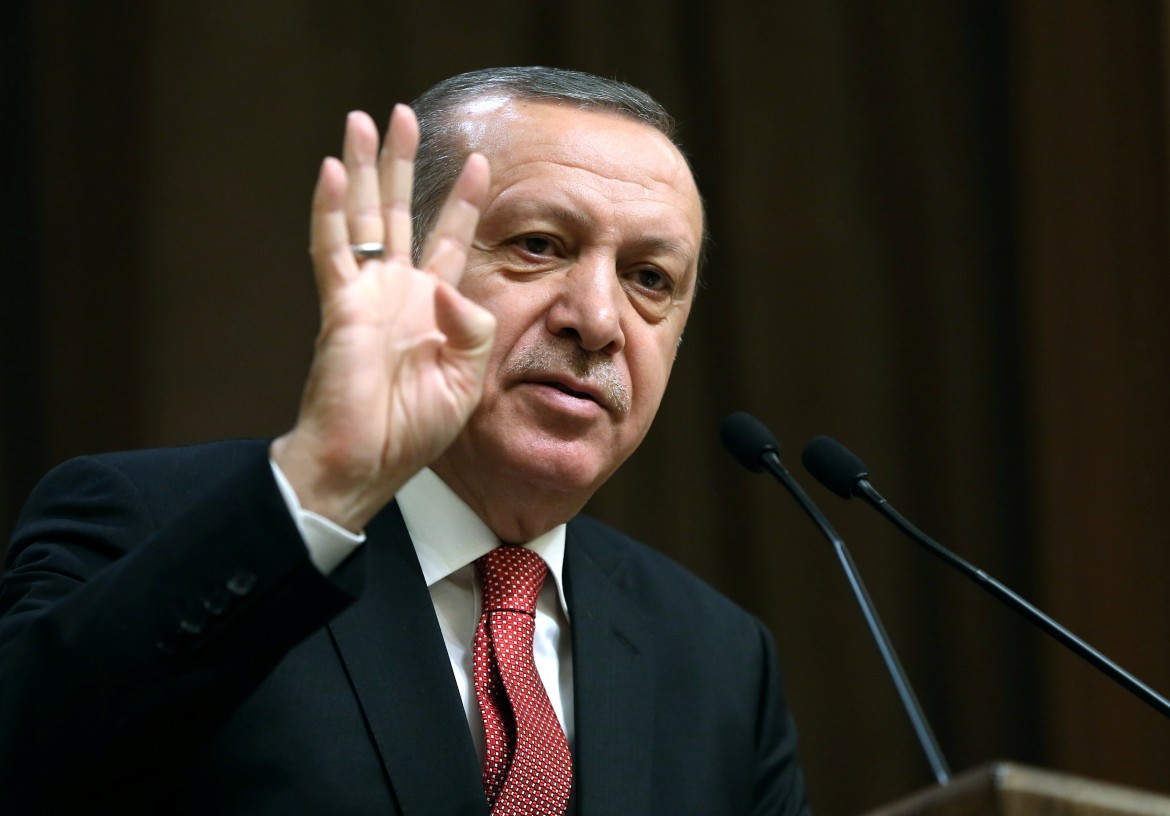Reportage
Erdogan’s reforms move Turkey closer to ‘state-party’
By threatening to call early elections, President Recep Tayyip Erdogan hoping to pressure MPs into passing reforms that consolidate power in the presidency.

The discussions in Turkish Parliament continue to intensify around amendments to the constitution initiated on Jan. 10. Nine articles have been approved so far by a majority, between 341 and 343 of the votes, above the necessary 330. The HDP party continues to boycott the vote, while the other opposition party, the SPD, is voting against the measures, joining the HDP to vote on parliamentary oversight.
Among the most heated were the fifth and sixth votes, which removed from parliament many of its checks on executive powers, including the abolition of the no confidence vote. The president has been given the power to rule by decree and may also push back laws to parliament if he considers them unconstitutional, or challenge parliamentary measures at the Constitutional Court. Another vote covered judicial power, to whose requirement of “independence” was added an unspecified requirement of “fairness.”
The reforms increased the number of MPs from 550 to 600, justified, according to the government, by the need to improve representation of the increased population. It lowered the minimum age of MPs from 25 to 18 years old, and the requirement to have fulfilled military service was partially eliminated.
A requirement was introduced to hold parliamentary and presidential elections every five years simultaneously. It also removed a requirement that the president be impartial, something to which he’s bound by oath in the current constitution, paving the way for a president to also chair a political party.
Deniz Baykal, a prominent member of the Republican CHP party, declared that with this reform “we want to create the state-party,” contesting that the boundaries of separation of powers are being demolished. Secretary Kilicdaroglu was also firm: “The presidency is no place for tyranny on the nation or for the unlimited ego of one person.”
Erdogan for his part does not seem to listen and counterattacked, fearing the possibility of early elections: “If the opposition makes parliamentary work impossible, early elections are a possibility.” He’s mindful that many parliamentarians are reluctant to face new elections for fear of losing their seat, not to mention that Turkey is under a state of emergency, incompatible with a free and tranquil election campaign.
However, HDP said through spokesman Ayhan Bilgen that they favor early elections, “even if the government raised the threshold to 15 percent.” The threat of early elections is perceived as a bluff to keep parliamentarians committed to passing the amendments. The CHP said that early elections would be a preferable solution to authoritarianism.
Some sections of Europe has also been critical of the reform. The European Socialist Party wrote on Twitter: “#Turkey one step closer to full dictatorship today. Back in 1993, #Erdogan defined presidential systems as a ‘symptom of imperialism.’”
Originally published at https://ilmanifesto.it/la-riforma-di-erdogan-procede-verso-la-forma-di-stato-partito/ on 2017-03-14
